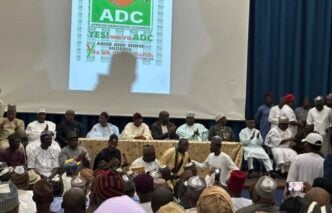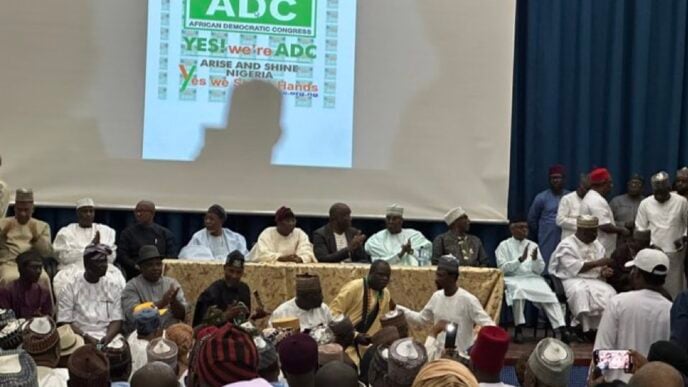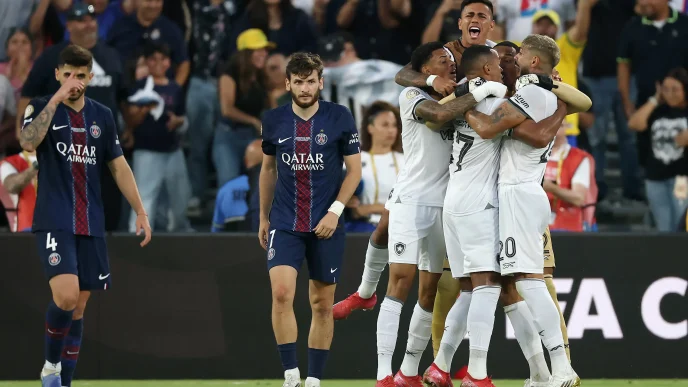Protesters at the #EndBadGovernance demonstration in August 2024
BY ABIODUN SHOMOYE
Nigeria’s political history has been shaped by waves of alliances, realignments, and emergent forces, each promising a new direction and a better future. From the early post-independence coalitions to the merger that birthed the All Progressives Congress (APC), we have seen the political class attempt to reinvent itself, often in response to national crises or public demand.
While not all these efforts were successful in delivery, many had a semblance of coherence. They were anchored on ideology (however loosely defined), strategic foresight, and a desire—genuine or otherwise—to chart a new course. Most importantly, they were not devoid of competence. Whatever one may say about the outcomes of those alignments, their architects could not be accused of lacking political skill or organisational discipline.
Today, a disturbing trend is emerging within our generation’s political space. Instead of coalitions rooted in shared values and visionary thinking, we are witnessing alliances formed primarily out of disappointment and ego. Political marriages are now born less out of ideological conviction and more out of personal loss—an attempt by those who have been sidelined or defeated to re-enter the stage, not through reform, but through retaliation.
Advertisement
This is a dangerous trajectory.
True political alliances are meant to be an amalgamation of ideas—a convergence of philosophy, strategy, and a shared commitment to national progress. When older political actors came together in previous decades, there was a certain clarity of purpose. Whether one agreed with their methods or not, their alignments were strategic responses to the national mood, carefully calculated with an eye on public sentiment and institutional influence.
Our generation, however, is now veering off course.
Advertisement
Instead of building on the political capital of youth, energy, and digital influence, we are enabling political actors whose only qualification for realignment is a shared grudge. These figures are united not by ideas, but by grievances; not by reformist spirit, but by the desire to remain politically relevant at all costs.
This is not a legacy we should accept or endorse. If allowed to continue, it will become the default model for future generations. Young Nigerians who are just beginning to understand political engagement may come to believe that this is how politics should work: that bitterness is a strategy, that alliances need no ideological foundation, and that ambition without vision is enough to lead a nation.
History is watching—and it will not be kind.
It will ask how a generation blessed with the advantages of technology, access to information, and a massive youthful population ended up producing alliances weaker than those formed in times of analogue limitations. It will ask why we traded potential for pettiness.
Advertisement
The burden of political excellence rests on every generation. Our predecessors, despite their shortcomings, achieved significant political feats—some forged national coalitions in eras of limited communication, others built political structures that lasted decades. They were not perfect, but they often embodied a seriousness that today’s realignments sorely lack.
What we are seeing now is not strategy—it is improvisation by desperation. These realignments, often noisy on social media but hollow in substance, offer no clear path, no concrete policy direction, no guiding values. At best, they are exercises in optics; at worst, they are rehearsals for political chaos.
The youth must resist the temptation to blindly celebrate every new coalition simply because it presents itself as “anti-establishment” or “youth-inclusive.” We must interrogate motives, demand substance, and reject mediocrity dressed as momentum.
If not, we risk becoming the generation that had everything—numbers, energy, technology, opportunity—and still failed to lead. We risk becoming the architects of a culture of political unseriousness.
Advertisement
There is still time to reverse this course. True political realignment requires reflection, strategic vision, and sincere engagement. It requires collaboration across class, region, and ideology, not just convenience among the disgruntled. It requires new faces, yes—but also new thinking. We must redefine the standards for political participation and leadership. We must stop celebrating form without content, noise without structure, and movement without direction.
Let this generation be remembered not for pioneering mediocrity, but for restoring excellence. For bringing back the weight of ideas in politics. For demanding competence before charisma. For prioritising future impact over present anger.
Advertisement
Nigeria deserves better. And so does this generation.
Abiodun Shomoye can be contacted via [email protected]
Advertisement
Views expressed by contributors are strictly personal and not of TheCable.











